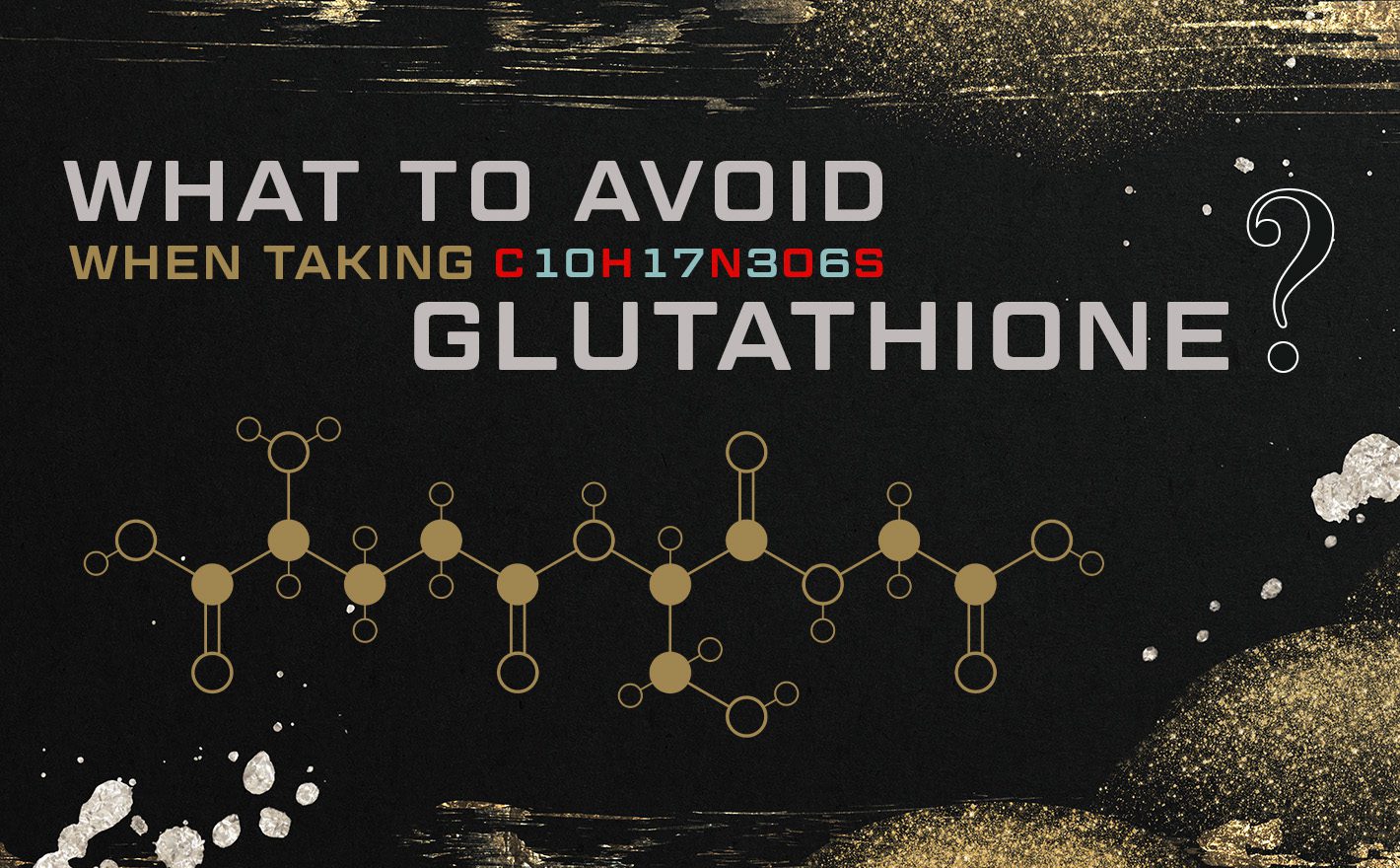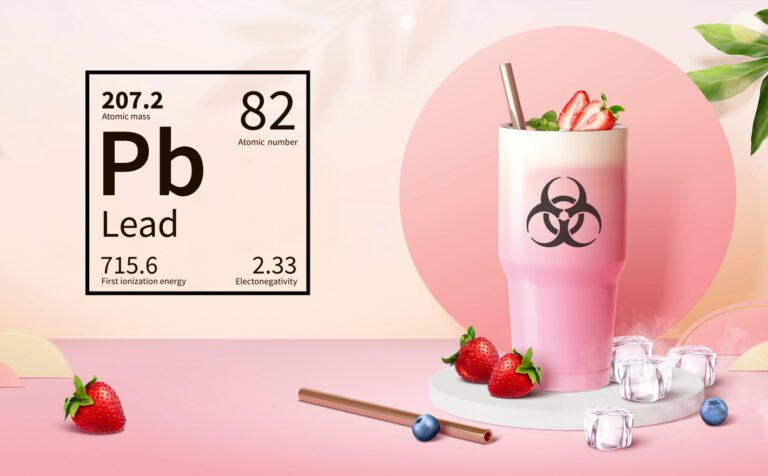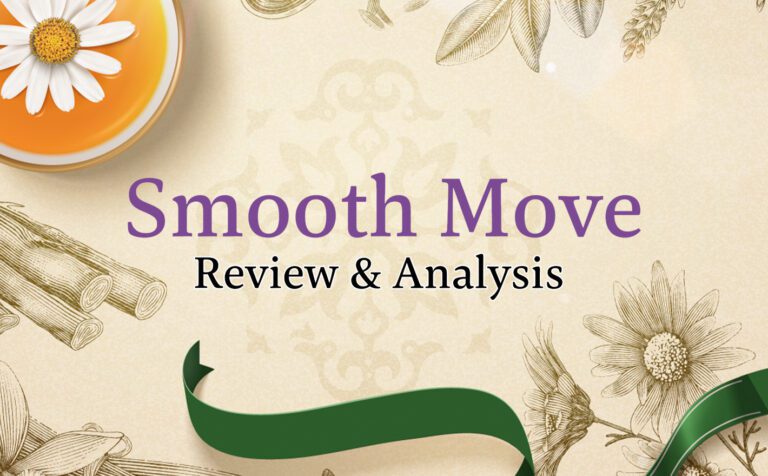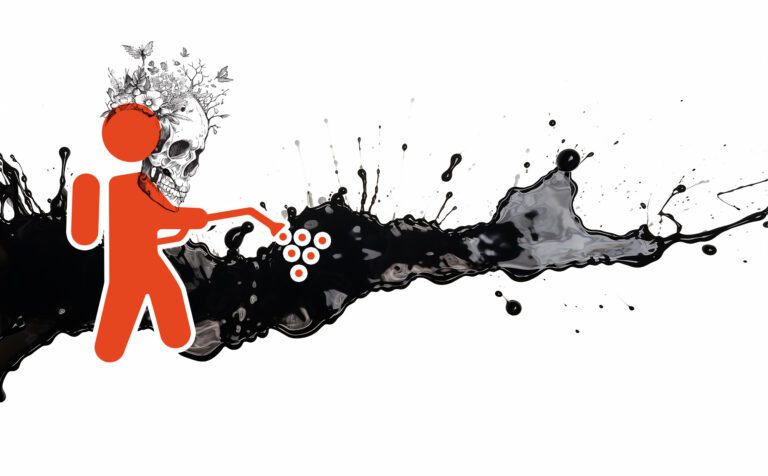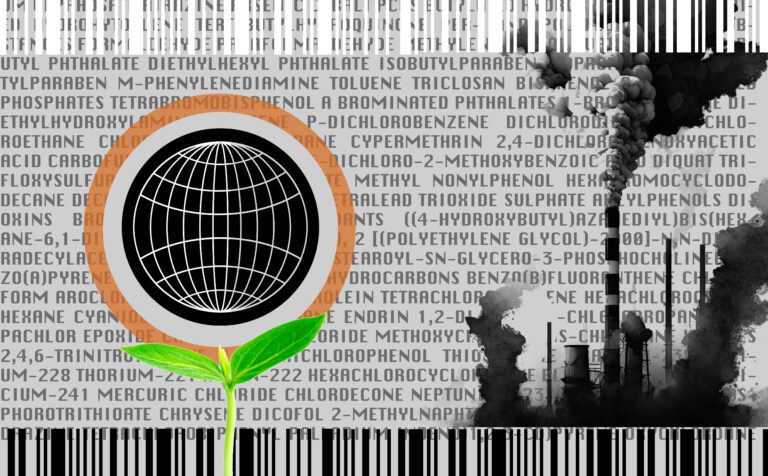What should you avoid when you take glutathione? The real answer is a lot simpler than you might imagine.
According to Google search data, about 3,000 people per month are asking this question, so it’s clearly a significant concern. While researching this article, we decided to first see what everyone else had to say about it, and then evaluate the accuracy of the information we came across.
What we found was shocking: the majority of the top hits on Google offer nothing but highly speculative, largely irrelevant information. We also found several pages on glutathione side effects and precautions, including articles from top resources like WebMD and Drugs.com, that contain false information (more on that later).
At CHOQ, we absolutely love glutathione (which is why we formulated APEX Liposomal Glutathione, the most advanced product of its kind).
We believe it to be essential protection against the onslaught of health-destroying chemicals in our environment–which we write about frequently in our blog. Not only does it have profound effects on detoxification, but also immunity, mood, and healthy inflammation response.
So yes, when it comes to glutathione, we’re super geeks. Thus, we’re extremely excited to set the record straight on what you actually need to avoid when taking it.
If you want to skip our dismantling of the bad information out there on glutathione, then you can click here to go right to our suggestions.
Seven popular websites falsely claim that glutathione depletes zinc despite lack of evidence
As mentioned, we discovered a variety of speculative, low-quality information on the topic of what not to do when taking glutathione. A lot of it was pure fluff that didn’t actually answer the question.
The most glaring piece of bad information we found in our review of other articles is the claim that glutathione lowers zinc levels. It does not.
Astoundingly, we found that a total of seven websites make this claim, but there’s zero evidence to back it up, so no, you don’t have to avoid glutathione if you’re worried about low zinc.
Some of them did cite a paper, but–as we’ll get to in a moment–that study in no way demonstrates that glutathione lowers zinc (and wasn’t even done on an animal, let alone a human).
Here’s a list of pages that incorrectly suggest that glutathione lowers zinc levels:
We spent hours and hours, reading dozens of abstracts, and were unable to find any evidence that glutathione lowers zinc, yet a number of prominent websites are unfortunately repeating this bad information.
Out of these seven pages, three of them were either written or reviewed by physicians, one by a PhD in immunology, one by a doctor of pharmacy, and two by people with bachelor’s degrees (in pharmacy and homeopathy). So, next time you’re reading something that’s been reviewed by someone with serious credentials, remember that professionals can be just as sloppy in their work as anyone else.
The articles from Drugs.com, WebMD, MedicineNet, and Biom do not reference any study to back up their claim, whereas the other three articles all cite an experiment performed on brewer’s yeast called “Impact of glutathione metabolism on zinc homeostasis in Saccharomyces cerevisiae”.
Not only was this study done on a yeast, but–if you actually read the study itself–it doesn’t even say that glutathione depletes zinc.
Here’s what the paper actually says:
“In mammalian cells, zinc deficiency is accompanied by a glutathione depletion. In the yeast Saccharomyces cerevisiae, the opposite effect is observed: under low zinc conditions, an elevated glutathione concentration is found.”
So right there, in the abstract, they say that mammals and yeast behave in an opposite fashion when it comes to zinc and glutathione.
This section is just for the geeks. Feel free to scroll past it if you find this boring. Here’s what actually happened in the study:
1. The researchers didn’t feed glutathione to the yeast, but rather used ‘evolutionary engineering’ to produce a specific strain that tends to produce more glutathione, as well as a glutathione-derived metal chelating compound called PC2 (phytochelatin 2).
2. They found that the total amount of zinc in the yeast was unchanged in the high glutathione strain, but the amount of free zinc (unbound by any cellular machinery) was very low because most of it was attached to PC2.
In conclusion, this study didn’t even show that glutathione depletes zinc in yeast, but even if it did, it still wouldn’t matter because of how radically different humans and yeast are.
This is likely an example of one person publishing an article with a really bad citation, then a slew of other folks parroting it without doing any vetting whatsoever…something that happens way more than you might think, even with trained professionals like physicians and pharmacists.
How zinc and glutathione are really linked in humans
Zinc is necessary for glutathione synthesis, so if you want your body to be able to make glutathione, then ensuring that you’re getting enough zinc is a great call. In addition to helping your body manufacture glutathione, it contributes to hundreds of essential chemical reactions, especially those involved in immunity and hormone health, so there are ample reasons to ensure you’re getting adequate zinc.
Your body’s glutathione system requires quite a few nutrients in addition to zinc to function, though. Some of these nutrients include:
- Vitamin B2
- Vitamin B6
- Vitamin B9 (folate)
- Vitamin B12
- Selenium
APEX Glutathione contains all five of these nutrients in high-bioavailability forms, as well as liposomal glutathione, alpha lipoic acid, and herbal extracts that can enhance mood, focus, detoxification, and immunity. Click here to learn more about the most advanced glutathione supplement on the market (and our all-time highest rated product).
What you really need to avoid when taking glutathione
As mentioned, a lot of articles that we found on this topic consisted mostly of fluff that didn’t actually answer the question. Many of them simply gave you general health tips, like “eat healthy foods” and “don’t drink too much”.
We thought long and hard about how to answer this question in the simplest, most scientifically honest fashion, and here are the only 2 things you really should avoid:
- Any drug that’s been shown to have interactions with glutathione
- Dehydration
That’s literally it.
[Disclaimer: everyone is different, and to have a full understanding of what’s right for you–and to understand interactions–always consult with a licensed healthcare practitioner]
#1 – Glutathione drug interactions: which medications to avoid when taking glutathione
Glutathione is one of the most important molecules your body makes when it comes to detoxification, which includes the removal of pharmaceuticals (and their metabolites) from the body.
Therefore, changes in circulating glutathione levels could theoretically alter how much time a particular drug sticks around. Despite that, we could not actually find any specific drugs that glutathione is known to have dangerous interactions with.
The mechanism by which most drug interactions are determined is a system of liver enzymes called CYP450. Different enzymes in the CYP family act upon various drugs, but these enzymes can be sped up or slowed down by drugs and supplements as well.
This can have profoundly important effects. For example, if a certain substance is known to greatly slow down one of these enzymes, then any drug broken down by that enzyme will be present in the bloodstream in far higher amounts, leading to overdose.
Based on the available data, it does not seem that glutathione has any appreciable effects on the CYP450 system.
There are a number of drug interaction checkers online (such as the one at Drugs.com), and none of the ones we found contained glutathione in its database.
Here’s what RxList says about it:
- Glutathione has no known severe, serious, or even moderate drug interactions
- It has mild interactions with at least 89 different drugs
Unfortunately, neither RxList nor any other resources we could find list any of the drugs it’s supposed to interact with. Also, it’s common that when a drug interaction website lists something as ‘mild’, it’s referring to an interaction that’s purely theoretical and may or may not play out in reality.
Based on this information, it seems that glutathione is incredibly safe and unlikely to cause harm when mixed with any prescription drug. That being said, always be sure to consult with a licensed healthcare professional regarding interactions.
#2 – Avoid dehydration when using glutathione
The only other thing that you really should avoid when taking glutathione is dehydration, but to be totally frank, even this is unlikely to cause you any harm, given how incredibly safe glutathione is.
Water is absolutely essential for your body to eliminate toxins, and boosting detoxification while being dehydrated is like serving five alarm chili at a restaurant with no bathrooms: it’s a pretty bad idea.
Is there any scientific evidence that it’s dangerous to take glutathione when you’re dehydrated? Not that we could find. Interestingly, there’s some evidence that your body increases its production when you’re dehydrated.
That being said, a little understanding of the relationship between glutathione, water, and detoxification will shed some common sense light on this suggestion.
Your body requires large amounts of water to remove all the junk it’s constantly accumulating, including the pesticides, plastics, heavy metals, and other xenobiotics, as well as the normal waste products produced by your cells.
Glutathione binds to these toxins through a process called ‘conjugation’, which makes them water soluble, allowing the liver and kidneys to eliminate them.
Anecdotally, giving supplements that enhance detoxification to a dehydrated patient seems to increase the number of detox-related side effects. Like many other integrative medicine practitioners, this is something that I’ve seen countless times.
Here are a few tips to boost your hydration:
- Start the day with a full glass of clean, room temperature water (always have water before coffee or any other stimulant)
- Be aware that caffeine-containing beverages, as well as certain herbs and medications, can dehydrate you, and adjust your intake accordingly
- Remember that foods can be hydrating or dehydrating: for example, raw fruits and vegetables are often hydrating, whereas cooked, dry, and high protein foods are dehydrating
Protect yourself with glutathione, but also arm yourself with knowledge
Since the beginning, CHOQ has always been outspoken about the dangers of chemicals and the need to protect ourselves from them. In addition to the detox and hormone support products that we offer, we also regularly publish free articles that help you educate yourself on how to stay healthy and sane amidst the chaos and toxicity of the modern world.
If you’d like to learn more about glutathione, detoxification, and how to protect yourself from the chemical soup of modern living, you’ll love these articles:
- 350,000 Reasons to Take Glutathione (and how it actually works in your body)
- Glyphosate Exposed: the Séralini Papers
- Hormones Under Fire: Worse Living Through Chemistry
- Clown World Report: Man Drinks Glyphosate on Camera
